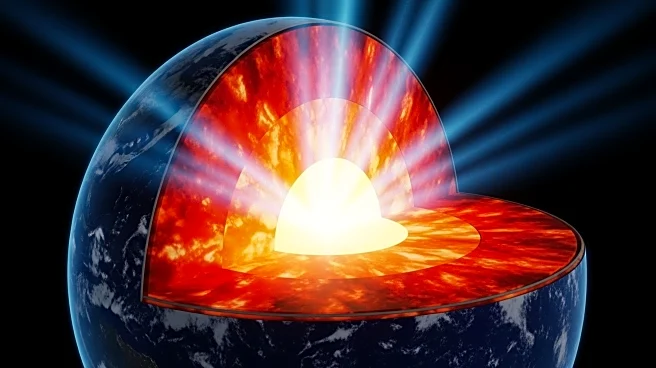What's Happening?
Researchers have discovered a chemical signature in ancient rock samples that suggests remnants of proto-Earth may still exist within the planet. This finding challenges the long-held belief that Earth's chemistry was completely reset following a massive
meteorite impact 4.5 billion years ago. The study, published in Nature Geoscience, reveals an unusual imbalance of potassium isotopes that cannot be explained by known geological processes. The research team, comprising scientists from the U.S., China, and Switzerland, suggests that this anomaly may be the first direct evidence of preserved proto-Earth materials.
Why It's Important?
This discovery has significant implications for our understanding of Earth's formation and evolution. It suggests that some original materials from proto-Earth have survived despite the planet's transformation after a meteorite impact. This could lead to new insights into the conditions that led to the development of life on Earth. The findings also highlight the complexity of planetary formation and the potential for discovering more about Earth's early history, which could inform studies of other celestial bodies and their development.
What's Next?
Further research is needed to confirm the origins of the potassium anomaly and explore its implications for Earth's geological history. Scientists may conduct additional simulations and analyses to determine if similar anomalies exist elsewhere on Earth or in extraterrestrial objects. This could lead to a broader understanding of planetary formation processes and the preservation of ancient materials.
Beyond the Headlines
The discovery raises philosophical questions about identity and continuity, akin to Theseus's Paradox, as it challenges the notion of Earth as a completely transformed entity. It also underscores the importance of interdisciplinary collaboration in advancing scientific knowledge.















